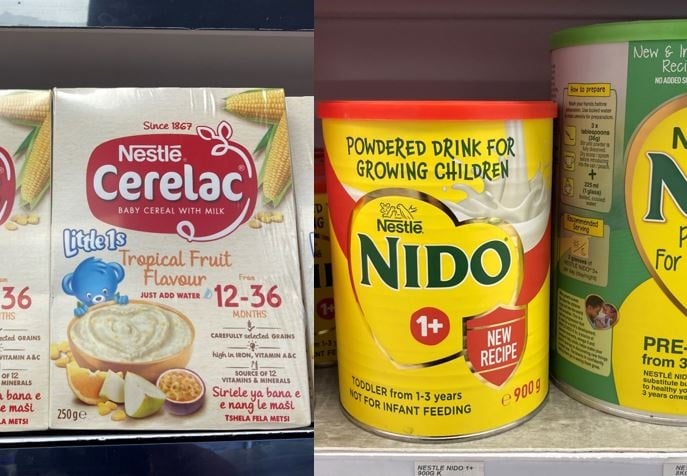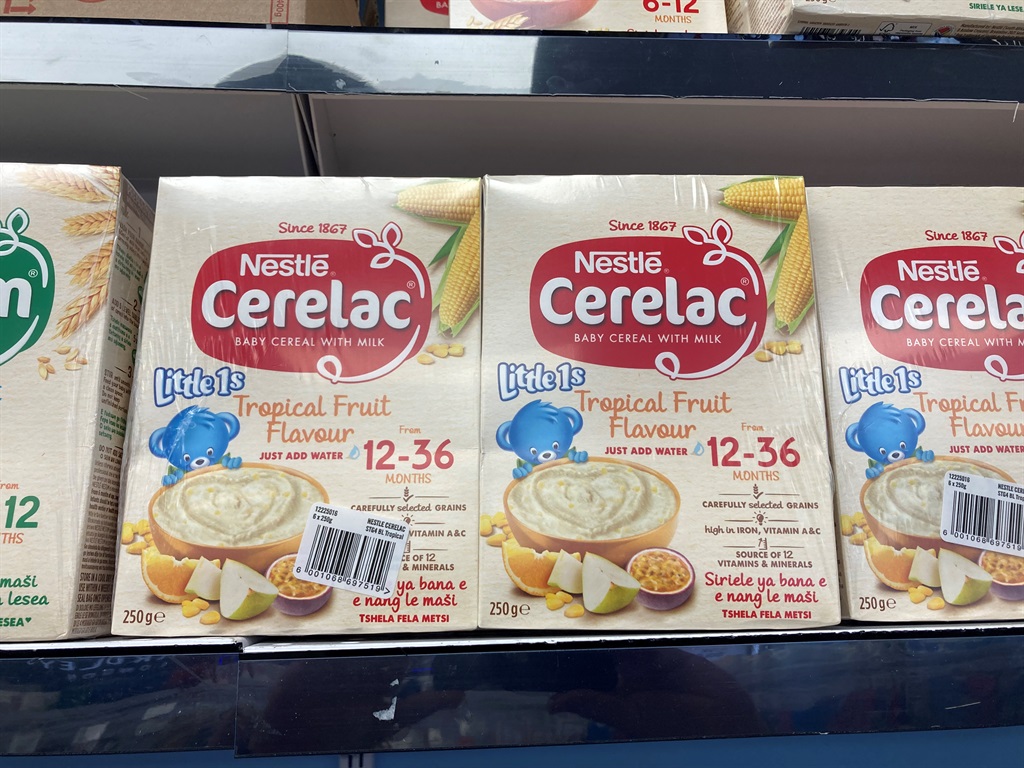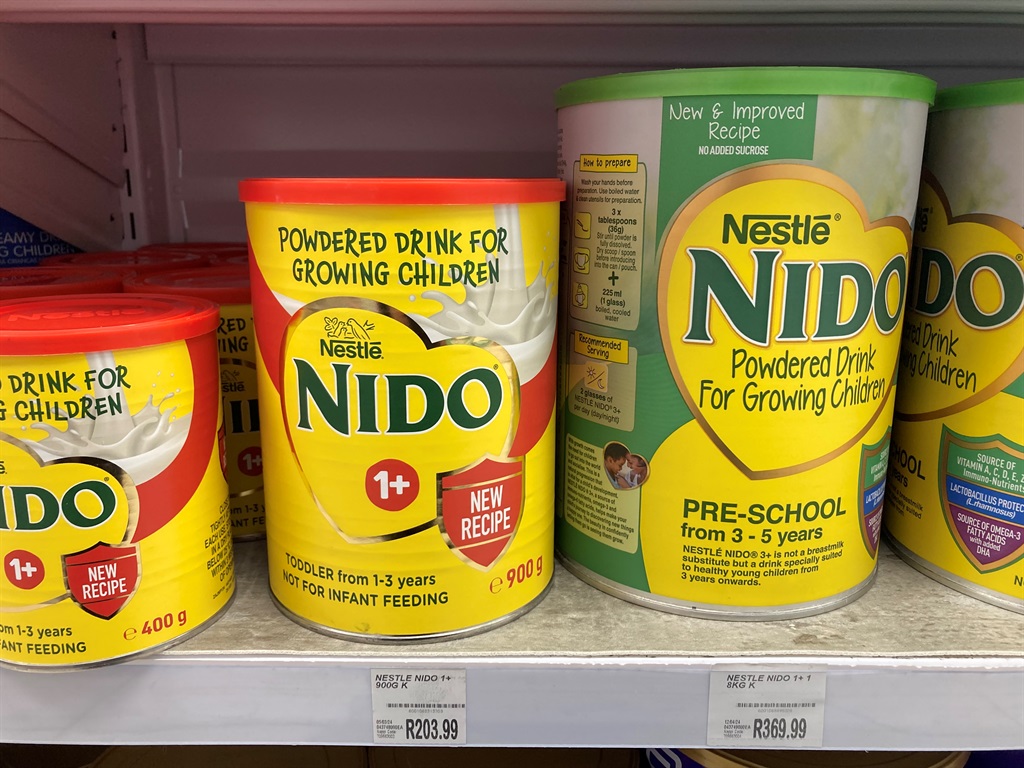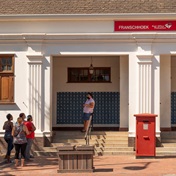
- Nestlé is adding sugar to baby food brands sold in South Africa and other low and middle-income countries.
- It sells sugar-free formulations of the same product in Western markets like Switzerland.
- A Nestlé spokesperson claimed that the variations in the formula do not affect the nutritional integrity of the products.
- For more financial news, go to the News24 Business front page.
Multinational food and beverage company Nestlé has been accused of violating health guidance by selling baby food with added sugar in low- and middle-income countries, including South Africa, while selling sugar-free alternatives with the same name and branding in Western markets.
This was the finding of a joint investigation by Public Eye and the International Baby Food Action Network (IBFAN), which analysed 150 Nestlé baby food products sold in lower- and middle-income countries. The nutrient values on the packaging were analysed and, where necessary, owing to opaque labelling, the products were sent to a laboratory for testing.
The report was released a day before Nestlé's annual general meeting.
The investigation found that Nido and Cerelac, two of the most popular baby food brands sold by Nestlé, had higher sugar content in lower- and middle-income regions than in wealthier countries, despite being sold under the same branding and package design.
An average of four grams of added sugar was found per serving of Cerelac across these regions, and two grams of added sugar per serving was the average for Nido.
The same products had zero grams of added sugar per serving in Switzerland, the country where Nestlé is headquartered.
An average cube of sugar weighs between three and five grams.
The report said that all brands of Cerelac sold in South Africa, which was identified as the largest market for the product on the continent, contained four or more grams of sugar per serving.
The Nido products for children from one to three years old, contained an average of 0.9 grams of sugar in South Africa.
Nido and Cerelac are for sale in a host of South African retailers and pharmacies.
Health
Nestlé spokesperson for East and Southern Africa, Mota Mota, sent News24 a statement about the matter, arguing that regional recipe adjustments to the products do not compromise the nutritional integrity of Nestlé products designed for infants and young children.
"... Slight recipe variations may exist across countries due to factors like regulations, consumer preferences, and ingredient availability," said Mota.
However, adding sugar to baby food products flies in the face of guidance from health authorities.
Federal guidelines in the US indicate that children under two years of age should consume no processed sugar, with research linking consumption to childhood obesity and future ailments such as heart disease. The investigation said that the World Health Organisation has been calling for a ban on added sugar in products for babies and young children under three since 2022.
Results from the first nationwide food and nutrition study conducted in South Africa for thirty years indicated that nearly half the population is obese.
'Colonisation'
The authors of the report spoke to Karen Hofman, a professor of public health at the University of Witwatersrand and a qualified paediatrician, who said that the difference in the sugar levels is a form of "colonisation".
"I do not understand why products for sale in South Africa should be different from those that are sold in high-income settings.
She added:
"There is no valid reason to add sugar to baby food anywhere."
Mota said Nestlé had taken measures to reduce the sugar content throughout the company’s product range.
"We have undertaken significant efforts to minimise sugar content throughout our product range, including the phased removal of added sugars such as sucrose and glucose syrup from our growing-up milks for children above 12 months worldwide," he said.
Mota said that Nestlé ensured that products met the standards set by local and international regulators.
"Our formulations are meticulously crafted with balanced, high-quality ingredients tailored to support the growth and development of children," he said.




 Publications
Publications
 Partners
Partners














